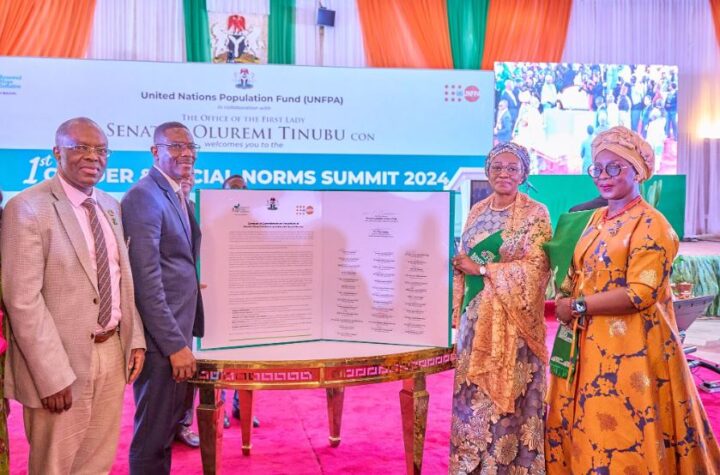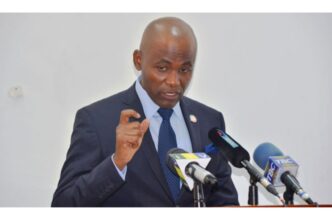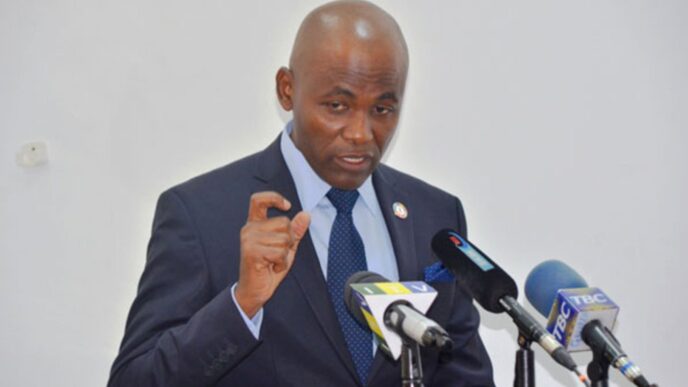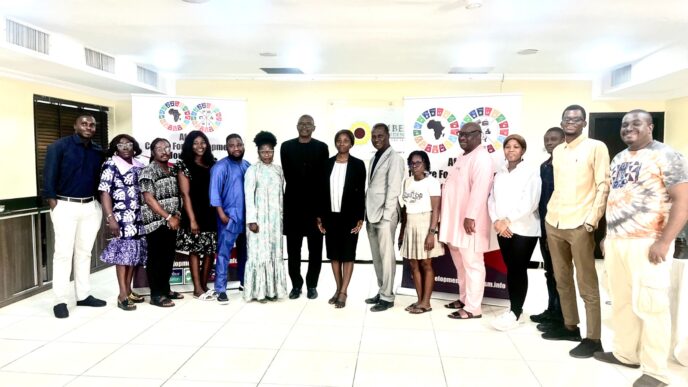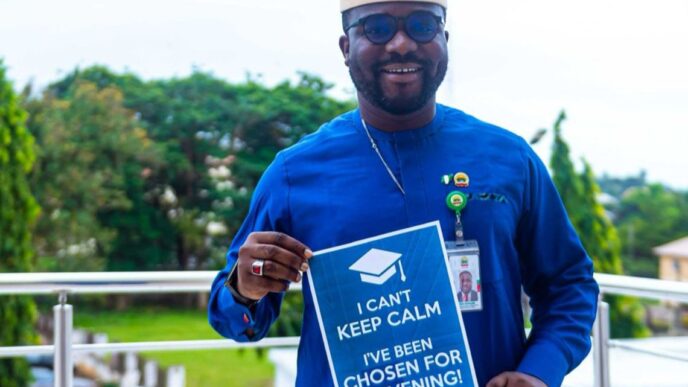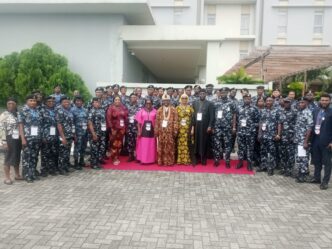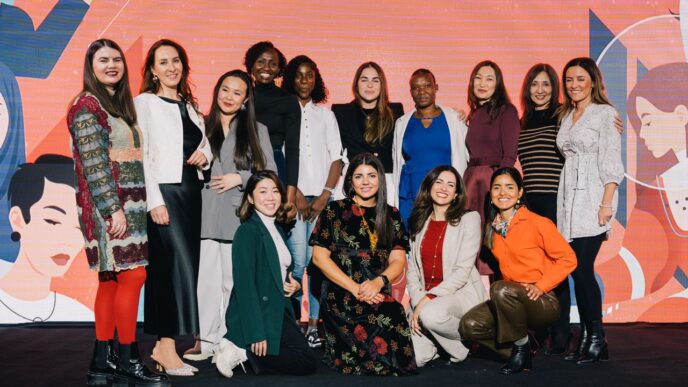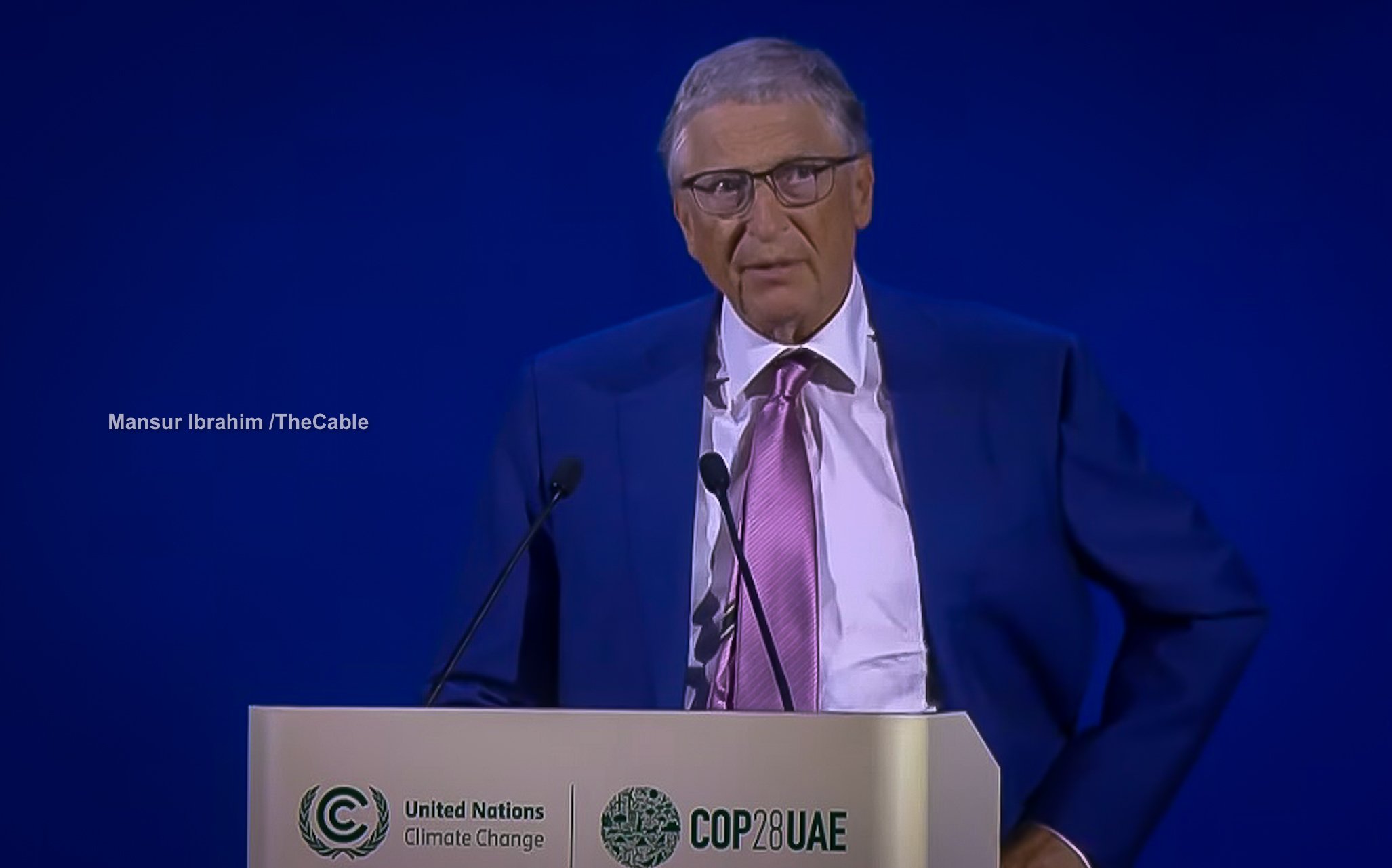Oluremi Tinubu flanked by UNFPA officials in Abuja
Oluremi Tinubu, the first lady, has called for stiffer laws and punishment for perpetrators of gender-based violence (GBV) and related offences.
Oluremi spoke in Abuja on Tuesday at the first gender and social norms summit organised by the United Nations Population Fund (UNFPA), in collaboration with her office.
The first lady said the summit provided an opportunity for stakeholders, including wives of state governors, to create awareness, exchange ideas, and promote effective strategies for preventing and responding to GBV and other harmful practices.
“We must also develop state-specific action plans and promote the allocation of adequate resources in government budgets to support gender equality initiatives and GBV prevention programs,” Oluremi said.
Advertisement
“Each state has its own unique cultural, social, and economic contexts, and our plans must reflect this diversity.
“There must be improved legislation to give and enforce appropriate punishment for perpetrators of rape, sexual abuse, and other forms of gender-based violence who are dangerous and not deserving of roaming the streets.
“We have to speak not only firm and tough but act accordingly.”
Advertisement
The first lady expressed worry over the increased reports of rape cases and GBV, which she described as “alarming”.
Oluremi urged the legislators and other relevant authorities to ensure appropriate punishment is given to anyone found guilty of GBV.
“Every single day, we hear about rape cases; even our babies are violated. Do we allow this trend to continue or do we look the other way?” she questioned.
“That is why I am calling on the law enforcement agencies, the inspector-general of police, the attorney general of the federation, and the chairman of the national assembly, who is the senate president, to appropriate and enforce stiffer laws and punishments to perpetrators of rape, sexual abuse, and other forms of gender-based violence.
Advertisement
“No guilty party should be allowed to go free and start roaming the streets looking for the next victim.”
On their part, the minister for education, attorney-general, minister of justice, women affairs, and youth rallied support for the first lady in increasing awareness against GBV and ensuring that perpetrators do not go unpunished.
They noted that with improved education for the girl child, youth improvement, and women empowerment, among others, there would be a significant reduction in harmful practices.
Karima Bungudu, the UNFPA gender and female genital mutilation (FGM) analyst, while presenting the works of the agency Nigeria, said nearly one in three women have experienced some form of GBV, including those with disabilities, who are the more susceptible and vulnerable ones.
Advertisement
Bungudu noted that the prevalence of FGM and child marriage, which in some cases lead to vesicovaginal fistula (VVF), and other forms of violence against girls and women remain “unacceptably high”.
Advertisement
Add a comment
